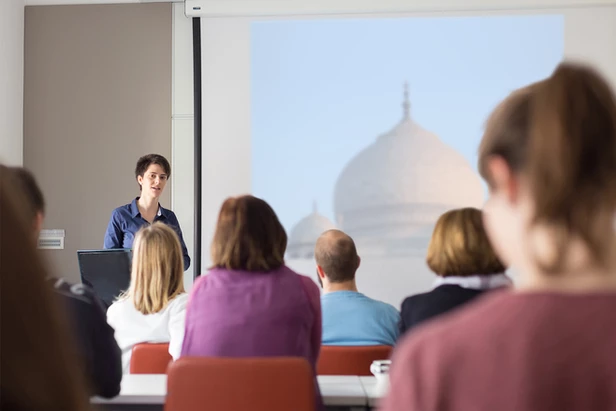口语
我们继续来看看雅思考试的口语部分。

-
练习方法
-
IEE 回答法(也就是 idea +explanation +example ), 最后我附录了一些常见的口语话题idea 以及相关词汇;
-
我还会使用有道云笔记(录音转文字,这样自己可以从文字中,总结改进);
-
使用回音跟读法纠正自己的发音;
-
尝试1-2-3 3-2-1 练习法,也就是1个话题,先说1分钟,然后2分钟,3分钟,再2分钟,1分钟(这样说同样的话题就会越来越流利,也便于积累词汇);
-
尝试英语流利说app;
-
在网上找雅思前考官口语评分。

-
考试技巧
口语分三个部分:
- part 1是4--5个常见问题(自己的工作,学习,家乡等),您的答案长度 are between 2-3 sentences long.
- Part 2会给你一个问题(问题一般是5w1h),准备1分钟,自述2分钟。自述的时候先同义转换问题,然后用I'd like to talk about ..... 2分钟时间到了,老师一般会有一个跟你讲的内容有关的follow up question.
- Part 3一般是跟part 2 相关的更抽象的一些问题,大概5--8个问题,每个答案一般是 4-6 sentences long.

The seven common question types that appear in IELTS speaking part 3 are:
- Opinion– What do you think about ‘this’? Remember to say why you think that way and give examples.
- Evaluate– What do you think about someone else’s opinion?
- Future– What do you think will happen in the future?
- Cause and Effect– What caused ‘this’ and/or what effects has ‘it’ had?
- Hypothetical– Talk about imaginary or unreal situations.
- Compare and Contrast– Talk about the difference and/or similarities between two things.
- Past– How were things different in the past and how have they changed?
注意事项
- 发音:stress(word+sentence)重音, intonation(有升降调,表达情绪), weak sounds(弱化), linking words(连音);
- 表达清晰流利,语速自然,不过快或者过慢,可以借助适当的表情和肢体语言;
- 注意口语问题,一般后面都有后续,需要解释理由,回答why;
- part 3一般问题都比较抽象,不易懂,所以可以让老师rephrase或者repeat, explain word一定弄明白问题才做答;
- part 3某个问题实在太难,可以用That’s an interesting question, let me think for a second. If I had to give an answer I would say……. That’s a difficult/interesting/tricky question, let me think for a second. I’ve never thought about that before, please give me a second.I’m going to have to think about that one for a few seconds. 延长思考时间;
- 考官不需要认可我们的答案,认同我们的观点。他/她负责考核的仅仅是我们的发音,语法,词汇和连贯性等是否满足考试要求。

附录
1. 相关idea =keywords
1) Cities: 优点:Urbanization, Traditional activities like farming need fewer workers. migrate to cities from the countryside. in search of job opportunities. greater employment possibilities , a higher standard of living. 缺点: the cost of living is higher . not manage to find work. Housing more expensive. Homelessness and poverty are common in cities. gap between the rich and poor. traffic congestion , stressful.
2) Education : Benefits : gives people knowledge and skills. with qualifications are more likely to find work. earn a higher salary. teach young people moral values such as tolerance and sharing. prepare children to be members of a society. Economies are becoming increasingly knowledge-based.
3) 留学或者高等教育higher education:Studying Abroad ,Overseas students优点:Foreign institutions may offer better courses. attend a prestigious university, experts in their fields. Qualifications open the door to better job opportunities/better employment prospects. Repetitive manual jobs are now done by machines. Most jobs require specific knowledge and skills. Skilled workers are needed for sectors such as information technology and engineering. broaden students’ horizons. exposed to different cultures and customs. more independent. responsible for cooking, cleaning and paying bills. learn a foreign language. 留学缺点:problems with paperwork such as visa applications. language barrier ,find accommodation and pay bills. foreign language is challenging. Living alone in an unfamiliar culture can cause homesickness.高等教育缺点:A healthy economy needs a wide range of workers. manual workers needed. In the UK, for example, there is currently a shortage of plumbers. A university degree is not necessary for many service professions. Practical training is more important in some industries.
4) 教育中技术的应用:Technology in Education:优点: a powerful tool to engage students. make lessons much more interesting. do research using online resources. study at their own pace. Adults take distance learning courses. Students can study whenever and wherever they want. learn skills which are useful for their future jobs. Such as write reports using a word processor 缺点:rely too much on computers.Young learners do not become proficient in some basic skills. use word processors with spell-checkers. handwriting and spelling may suffer. no substitute for a real teacher. experienced teacher knows what materials to choose. Computers are expensive to maintain and can be unreliable. supplement traditional teaching with the use of technology. use online resources to help with homework. use traditional sources of information such as books.
5) Home-Schooling:优点:educate their children at home. in isolated areas with poor transport. not satisfied with local schools. respond to what their children need and how they learn best. One-to-one lessons allow much faster progress. work at his or her own pace. Discipline problems are avoided 缺点:Most parents do not have the time, One parent would need to give up work. School subjects are normally taught by up to ten different teachers. Most parents do not have the necessary knowledge or resources. Private tutors are expensive. miss out on the social experience that school offers , how to get on with each other. lack social skills. Schools offer a better overall educational experience.
6) 在学校的Bad Behaviour :原因:a lack of structure and discipline. disruptive students come from an unstable family background. parents are too lenient and spoil their children. are used to getting whatever they want. not supported by parents.解决方案:a clear code of conduct. a clear set of rules about behaviour. create a positive working atmosphere. Teachers have the power to punish disruptive students. remove difficult children from lessons. work closely with parents. Discipline could be lacking at home. Parents must support the school rules. take responsibility for their children’s behaviour.
7) 体罚:Corporal Punishment: Physical punishment 是is a way of controlling children using fear. 缺点:This does not promote trust between adults and children. are punished physically may become shy or resentful. creates an atmosphere of fear and anger.
8) 混合学校还是单性别学校:Single Sex Education male and female students should go to separate schools. 优点:religious or cultural reasons. Discipline problems might be avoided by separating boys and girls. learn in different ways and have different needs. get better exam grades 缺点:is unnecessary., unhealthy in terms of children’s social development. Many coeducational schools are extremely successful. A mixed-sex environment is more representative of real life. better social skills for adult life.
9) 分班: Streaming (grouping children according to ability) separate students according to their academic ability. 优点:Teachers can work at the right speed for their students. plan more suitable lessons. High-level groups may progress faster. Lower level groups can benefit from a slower pace.缺点:a negative impact on students. seen as less intelligent than others. damage students’ self-esteem. lose motivation. wealthier families tend to be better prepared. poorer families may receive less support from parents. Mixed ability classes encourage everyone to achieve their potential.
10) Environment:Global warming 全球变暖: Gases such as carbon dioxide trap heat from the sun. This causes global temperatures to rise. known as the greenhouse effect. Human activity is a major factor in the rise of the greenhouse gases. Factories and vehicles produce emissions and exhaust fumes. The number of cars on our streets is growing. 影响:a significant impact on our planet. Rising temperatures will cause melting of the polar ice caps. Sea levels will rise. more extreme weather conditions. Flooding and droughts may become more common. 措施:Governments could introduce laws to limit emissions from factories. They should invest in renewable energy from solar, wind or water power. They could impose “green taxes” on drivers. We should take public transport rather than driving.
11) 垃圾Waste / Rubbish,The amount of household waste is growing. The amount of waste we produce has increased. a result of our consumer culture. If something breaks, we throw it away and buy a new one. Advertisers encourage us to buy the newest fashions. Packaging is an important part of selling. This waste ends up in landfill sites. Most of the litter seen on streets is fast food packaging.解决办法:Recycling and Other Solutions, Companies should make goods that last longer. Governments should be stricter about waste produced by companies. They should not use so much packaging 。 They should put legal limits on packaging. We should recycle and reuse useful materials. Households can use several rubbish bins to separate waste. Recycling saves energy and raw materials.
12) Family: Working Parents : Nowadays both parents often work full time. Parents spend less time with their children. Children may be left alone, or with nannies or babysitter Many families no longer eat meals together. Children spend more time with friends or surfing the Internets. Children and their parents seem to be less close . 不良影响:The lack of closeness in families can have a negative effect on children. no idea how their children spend their time. Friends, television and the Internet become the main influences on children’s behaviour. influenced by peer pressure. Juvenile delinquency is on the increase. 解决方案:Parents should be more involved with their children’s upbringing. Young people need positive role models.
13) 照顾老人:Care for Old People, Caring for elderly people was traditionally the responsibility of families. Adults had to look after their elderly parents. fewer elderly people are looked after by their relatives. Residential homes provide care for large numbers of elderly people. Some families are unable to look after elderly relatives. Care homes provide a professional service for senior citizens. Nurses are better trained than family members.自己的观点:The best form of care for the elderly depends on the family situation. It depends on whether family members have the time and resources. We all have a responsibility towards the older people in our society. Governments should invest money in facilities and training for care workers.
14) Health: 饮食:diet , a balanced diet. fast food or pre-prepared meals convenience foods. They are cheap to buy and very easy to prepare. These foods often contain too much fat, salt and sugar. Populations in developed countries are increasingly overweight. They are at risk of heart disease and diabetes. An unhealthy diet can cause various health problems. Obesity, diabetes and heart disease are on the increase. 锻炼:Exercise:lead a sedentary lifestyle. Most adults relax by watching television. Regular exercise is essential in maintaining a healthy body. burns calories and helps to build healthy bones and muscles. Doctors advise exercising at least three times a week for 20 minutes.措施Governments have a significant role to play in reducing obesity. Governments should promote a healthy diet and regular exercise. more time for sport on school timetables. Unhealthy junk food should be banned from school menus.压力:modern lifestyles are increasingly stressful. work long hours with strict deadlines. Busy schedule and unemployment is a major cause of stress. Tests and exams can also cause stress. 怎么缓解:taking regular exercise and eating a healthy diet. get sufficient sleep and make leisure time a priority.
work less overtime and take regular holidays. emotional support to students. cope with exam stress.
15) Technology: Television, Internet, Phones:优点:Watching television is a good way to relax. favourite way to wind down after a hard day at work. Television programmes can be entertaining and enjoyable. Television brings the best comedians, musicians and actors into our homes. be informative and educational. News coverage makes the public aware of events around the world.缺点:Television is having a negative impact on society. link violence on television with crime rates in the real world. Children copy the behaviour they see on the screen. less healthy because they spend less time playing. Advertisers direct their marketing at children. 解决办法:Children should play outside rather than sit in front of a screen all day. Censorship on TV can influence people. TV companies should make more positive, educational programs. Parents should choose carefully what their children watch. Children should not be exposed to violence, swearing or sexual images. Advertising during children’s programs should be strictly controlled.
16) 互联网Internet or computers: 优点:instant access to information on almost any subject. buy goods and services from the comfort of their homes. revolutionized communication. keep in touch by e-mail or instant messenger services. Video messaging is becoming common for business meetings. It costs nothing to publish or access information on the Internet. 缺点:websites contain offensive content. sites show violent or sexual images. difficult to control what their children see online. difficult to search for good information. Criminals increasingly use the Internet to steal people’s money.
17) 手机mobile phones; 优点:the most popular gadget in today’s world. stay in touch with family, friends and colleagues wherever we are. send text messages, surf the Internet, take photos and listen to music. become fashion accessories.缺点:be a problem in some public places. Ringing phones cause disturbances in cinemas and school lessons. a dangerous distraction. Using a phone while driving reduces the driver’s concentration.
18) 工作work. 频繁更换工作in order to further their career. Another company may offer a promotion or a higher salary. People who change jobs can gain experience. learn different skills. interesting and challenging. retrain in a different occupation.不更换工作:a stable career with one employer. a good pension and health insurance. salaries gradually increase. be promoted within the organization. demonstrate loyalty. Experienced staff can be trusted with more responsibility. There is a clearly defined path for development.
19) 自雇佣 self-employ easy to set up a company. Internet provides a global marketplace. greater freedom than working for a company.缺点:risks to starting a new business. face financial difficulties. Many businesses fail to make a profit. less stability in self-employment. no benefits like pensions, sick pay and holiday pay. involves hard work, long hours and total responsibility.
20) 失业 unemployment: 问题:unable to find a job. Unemployment causes frustration and stress. need careers advice. 解决办法:Governments need to provide vocational courses and retraining. governments pay unemployment benefits in order to help jobless people. need financial support until they find a new job. claiming benefits they can continue to pay for their homes缺点:claim benefits rather than working. become dependent on the government. not motivated to find a job. The benefits system is a burden on taxpayers. should work to earn a living and support themselves.
21) work life balance : It is important to achieve a balance between work time and leisure or family time. Too much work can result in stress and poor health.办法:People need to take regular holidays. Companies should not expect employees to work overtime. work part-time or have flexible working hours. Company provide childcare facilities. A good work/life balance can raise job satisfaction. Happy, healthy workers are more productive.
22) Child labor : repetitive jobs for very low pay. are often used in agriculture and factory work. employment of children is prohibited in other countries. children should be free to enjoy their childhood. supply the resources to educate children. Governments should make education a priority. build new schools. given the knowledge and skills for adult life
2. 同义转换词
(1) Big - major, man, serious, basic.
(2) Exciting - Exhilarating, surprisingly, I couldn’t stop jumping, My smile is so big, interesting, fascinating, it fun, remarkable, intriguing, stimulating , exhilarating, stimulating, intriguing, captivating.
(3) Yet- surprisingly.
(4) Because - thanks to, since,as, Given that.
(5) Good – reasonable, acceptable, pleasing.
(6) Compare — to equate , to liken, adv similarly, likewise.
(7) More/many - lots of, affluent, numerous, abundant, ample plenty, lots , ample, addition, extra.
(8) Doubt — have apprehension about, question sth don’t fully believe, distrust,be suspicious.
(9) Specific – particular, distinct, definitive, unique.
(10) Advise — suggest, recommend.
(11) Should - id better, ought to.
(12) Unusual – abnormal, strange, weird, irregular, distinct, unique, uncommon, rare.
(13) Contrast — differentiate, dissimilarity, contrary ,opposite.
(14) To predict - to anticipate, to assume.
(15) Conclusion – summary, completion, ending, finale.
(16) Problems — issues, difficulties, complications, concerns, worries.
(17) Important — essential, vital.
(18) Very—Incredibly, extremely, definitely, absolutely, totally.
(19) Beautiful – gorgeous, lovely, attractive.
(20) And - also, additionally, in addition, plus, more over.
(21) Quiet — pacific, peaceful.
(22) Benefit - advantage, betterment.
(23) Persuade - convince, encourage, convert sb to change one’s opinion, influence coerce , Pressure, force.
(24) Great - leading, finest, terrific , fabulous.
(25) Either - as alternative, instead, as a choice, on the other hand.
(26) Think - consider, take into account, ponder.
(27) Ask - enquire, inquire, request, question.
(28) Reason - factors, rationales, causes, intention.
(29) Agree - see eye to eye, concede.
(30) Possible - probable, be likely to, feasible.
(31) Memorable - unforgettable, memory stand out, sth to remember.
(32) Anticipate - assume, guess, suspect.
(33) Share idea - brainstorm together.
(34) Professional - formal , qualified, more suitable for workplace.
(35) More regular - more mainstream =more commonplace.
(36) Cancel sth - sb cannot do sth, sb won’t be able to do.
(37) Warranty - guarantee , assurance.
(38) Explain - go into details, describe.
(39) Wedding ceremony - wedding, celebration, ceremony.
(40) Boss - director, manager, supervisor, executive, management.
(41) Co-worker - colleague, collaborator, workmate or teammate.
(42) Policy - rule, regulation ,guideline.
(43) Match - competition, game, race, contest.
(44) Obey(the rule) - follow,adhere to, abide by, comply with.
(45) Disobey - fail to obey, violate, not follow/not abide by.
(46) Some - a few, a portion, fragment, a part (piece).
(47) Happen - take place, occur, appear.
(48) Cannot - couldn’t , be unable to.
(49) Young adult - young people, youngster.
(50) Older - senior, elder.
(51) Focus on study - study priority.
(52) Study abroad - get/earn foreign education, study in another country.
(53) friendly(with) - warm, nice, welcoming, hospitable, caring polite, make sb comfortable.
(54) helpful - useful, willing to help.
(55) many - a large number of, hundreds, millions, thousands, numerous, innumerable, countless.
(56) emphasize - stress, give sth more importance, make sth more noticeable, accentuate, highlight.
(57) accompany(动词) - accompany sb, go with, come with, be accompanied by sth, accompanying.
(58) companion伙伴 - sb you spend time with, has sb as company, friends.
(59) know - have information about, be familiar with sb/sth, realize, understand, find out about, be skilful/experienced at sth, be known to do sth, knowing.
(60) people - persons.
(61)Finish - sth ends, complete sth, end sth by doing sth, finalize (an agrrement) , conclude investigations.
(62) present 动词 - describe/show/to give a performance.
(63) talk - speak, have a conversation, gossip, converse, discuss, debate sth.
(64) reserve - book, order, arrange a place, set aside(parking spaces), keep.
(65) on site - on spot, presence, not absence.
(66) focus on - pay attention to, concentrate on, focus ones mids/efforts on, sth come into focus, sb bring sth into focus.
(67) job - work, paid work, responsibility, duty, task, career, position, vacancy/opening, employment.
(68) efficiency - inefficiency, without wasting time/money/energy.
(69) occupy - take up, stay/live in a place , fill time(space), (occupy sb with (doing) sth, use.
(70) colleague - co-worker, someone you work with, workmate.
(71) increase - grow(has grown at a rate of), double/triple, expand, soar (sth soar to ) , raise, boost, extend, maximize, boost(confidence/tourism).
(72) decrease - become less, go down to a lower level, reduce, decline, diminish(from ..to..).
(73) improve - enhance, make sth better, be improving.
(74) trip - journey, visit a place, travel, tour, excursion (短途旅行), expedition (探险考察).
(75) gather - collect, bring together, assemble ( evidence be assembled), build up ( collections of art), accumulate.
(76) communicate - exchange information, tell sb sth, convey, understand, express thoughts and feelings.
(77) share - use together, let sb use sth, give.
(78) cost - charge, expense, the money that sb spend in , price, the money sb pay for sth, value, fee, fare( 交通费bus fare), rent.
(79) education - process of teaching, school, subject, institutions, education authority, further=higher education, vocational education.
(80) health - medical services, keep sb healthy, public health, no illness or disease, mental/physical health, damage one’s health, health care, risk / threat to health, well-being.
(81) city - the government, large/major city, capital city, cosmopolitan(国际大都市) city, city dweller, city life, city center, metropolis (大都市),urban, outskirts, suburb, rural.
(82) community - community affairs/needs, sense of community (归属感).
(83) damage - physical harm, broken/injured, damage to sth, bad effects.
(84) save money - energy-saving, time-saving, manage to save, not waste.
(85) kinds - types, sorts.
(86) municipal - 市政府的municipally, relating to/belonging to the government of a town of a city.

